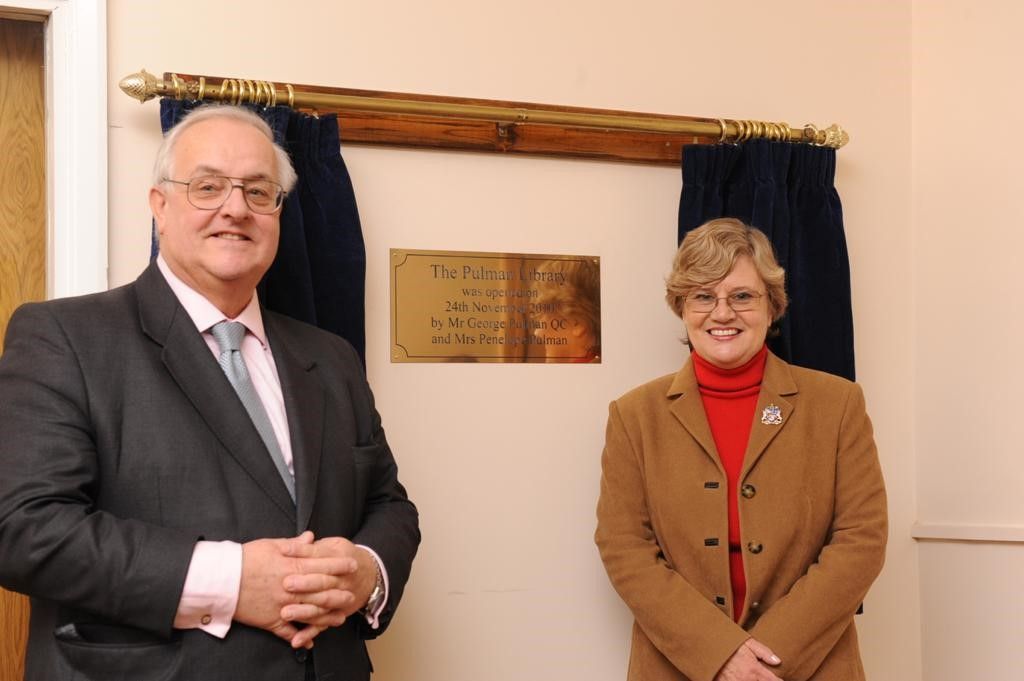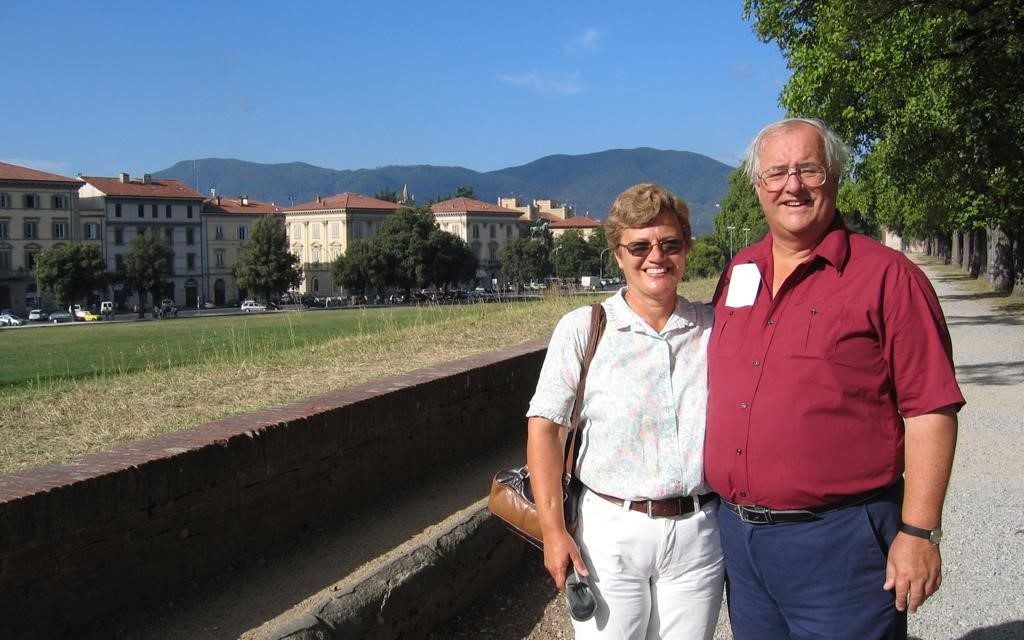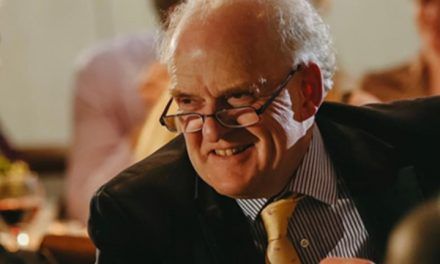George Pulman QC died on 15 January at home with his wife Penny from a sudden heart attack. He is greatly missed by his family and the hundreds of friends, colleagues and acquaintances who wrote to express their condolences.
George was born on Wednesday 16 March 1949 in Woking, Surrey, and educated at Gayhurst School in Gerrards Cross (where he won an award for ‘general efficiency’ that still hangs in the hall at home) and Marlborough College. At the time he left school, George was intending to study engineering but had a change of heart during the summer after reading a book about the life of Lord Birkett. Although in later life he would sometimes advise students to avoid legal fatigue by studying a different subject at university and then converting to law, this was not advice that applied to himself. Having selected law as his chosen career path, George retained an inexhaustible, infectious enthusiasm for law and legal practice for the whole of his life. He read law at Downing College, Cambridge, tutored by John Hopkins with whom he formed a lasting friendship.
Not wishing to waste any time, George studied for two months after finishing his degree and sat and passed the Bar re-sit exams in September 1970 (the last year such a short cut was possible). He went to Temple Garden Chambers as a pupil of Patrick Mayhew and practised there for two decades, largely in personal injury, before moving to Hardwicke. He was also a door tenant at Stour Chambers in Canterbury. George was appointed as Junior Counsel to the Crown, took Silk in 1989, and was elected a Bencher of Middle Temple in 1999. Later in his career, he focused increasingly on his work as a judge, a recorder, a deputy High Court Judge (family division), a judge of the Mental Health Review Tribunal, Deputy Chancellor of the Diocese of Peterborough and Chancellor of the Diocese of Chelmsford. He also made significant contributions to the reform of legal aid and the development of costs law through his work on multi-party actions with the (then) Legal Aid Board and with the Hong Kong Government Legal Aid Study Group.
But a list of dates and achievements does far too little to convey what was remarkable about George. He was unfailingly generous to those junior to him. After his death, one of the tributes posted on Twitter recalled an occasion when George led the writer’s pupil supervisor for a trial in Sheffield and paid for the pupil to stay with them in a hotel when the supervisor would not. That behaviour was typical. Throughout his life, George was concerned that young people should achieve their full potential, especially those aspiring to a career in the law. He devoted countless hours to advising prospective law students on university applications, organising mock interviews, conducting scholarship interviews for the Inn, supporting the Temple Law Society at the University of Kent, of which he was the patron, and supporting fundraising for Downing College as an Associate Fellow. This interest in helping students carried over to work outside the law. George was Master of the Haberdashers’ livery company from 2009 to 2010 and was a governor of several Haberdashers’ schools. He brought his judicial expertise to hearing school exclusion appeals and both teachers and pupils frequently commented that they found him fair, impartial, forensic and (importantly) supportive of all parties. It was no surprise that he was writing notes for a local pupil about university applications when he died.

Many who wrote following George’s death commented on his support for clients, his careful preparation of cases, his formidable powers of negotiation and his humour. It is a shame there is not space to list the many relevant examples in full, but the following are perhaps some of his less-well-known stories. Following the Kegworth air disaster, George represented a woman who had been badly injured in the crash. He wanted to travel to meet her in person but, as she lived in Jersey, the solicitor refused to pay for the trip. George went anyway, travelling at his own expense. The trip yielded valuable information; just before leaving, the client dropped into conversation that she had been in another minor air crash since the accident when a plane overshot the runway in Jersey – a plane operated by the same airline. On arrival at court, his opponent explained that the airline would be sticking with its offer; there was no more money to be had. ‘But of course,’ commented George, ‘you know about the other crash’. It turned out there was a lot more money. During another negotiation at the door of court, George had advised his client their case was worth around £10,000. The other side had offered £8,000. ‘I am afraid our figures are some way apart,’ said George to his opponent. A while later, another offer turned up: £12,000. ‘I am afraid our figures are still some way apart’, responded George. So the case settled for £15,000.
George’s family knew his negotiating skills, not least from Monopoly. £1,000 is, of course, a fair and reasonable price to pay for Vine Street. But everyone who came to visit or stay at home in Wadhurst knew George as an excellent host. It helped that he was genuinely interested in people; he wanted to know about their lives and interests. He was also a great and effortless conversationalist. Conversation with George would range over law, politics and religion, education, clothing (jackets were either ‘awful’ or ‘actually quite smart’), agriculture, and much more besides. Gardens and gardening machinery were a special interest. Everything must be pruned, to create a garden of right angles – flat lawns; branchless trees; flowerbeds optional. He made several spirited but unsuccessful attempts to mow the marsh by the pond. Perhaps it was because of his ease in speaking to people that he found it so easy to write letters. George was a prodigious letter-writer. Every visit, gift, achievement, or chance meeting was a reason to send many pages of hand-written text. (But it may also be relevant that he never really got to grips with computers.)
George met Penny in 1967 at Cambridge and they married in 1972. From 1980, they lived in Wadhurst, where they raised four children, and helped look after four (and now five) grandchildren. Despite a busy practice, George guarded his time with his family jealously, even at the expense of losing some work. He took a week or two each Easter and four to six weeks each summer to go on holidays to a family cottage on the Llyn Peninsula in Wales. The days were full of beaches, picnics, meals at the pub and dogs. He treated the dogs like people, giving them detailed instructions about what they could do or turning them out of the car with directions to the beach, and then being baffled by their refusal to obey or their subsequent disappearance. Sundays were spent visiting the tiny, pre-reformation church at Llandudwen. He had a strong Christian faith, which underpinned both his private and professional life.
A memorial service for Master George Pulman is scheduled for Saturday 9 October 2021 at 16:00 at Wadhurst Parish Church, where George was church warden for many years.



